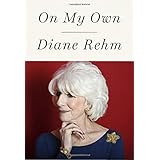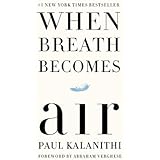
Writing and reading memoirs about death and dying is a tricky business. Readers' experiences run the gamut depending upon their personal circumstances, some facing sudden death caused by violence or an accident, others gently witnessing the slow extinguishing of an elderly relative who had lived a long and happy life. I remember being shocked at how controversial my book club members' found Joan Didion's heartbreaking work, "The Year of Magical Thinking."
As a long-time listener to public radio's Diane Rehm show I was familiar with the fact that her husband of over fifty years, John Rehm, had been slowly dying from advanced Parkinson's disease, that he had been in a nursing home for a while, and that he had made it clear that he was ready to move on to the next adventure.
As an involved Episcopalian, John did not fear death but he did not want to suffer. Because the Rehms live in Maryland, assistance in dying is not an option, so John chose to refuse food or water, not I can say from experience, a bad death. I had hoped that Ms. Rehm's "On My Own," would speak to the right to die movement and the work she's planning to do with Compassion and Choices( https://www.compassionandchoices.org )
after her retirement at the end of the year.
But no, I'm sorry to say, that Rehm's book came across to me as uncomfortably self-centered and surprisingly thoughtless. Her editor should have advised that she remove the word "I," substituting "he" or "they" or "we," at least half the time. This book will not provide solace or food for thought to recent widows. Most people will have trouble feeling empathy for a woman of Diane's stature and wealth when they read "what will I do? Who will take care of me?" a theme that runs exhaustingly throughout.
At eighty years old, Rehm has forged a glamorous career, has no health issues, has successful, loving children, and financial stability. Was I wrong to expect a lot more grace and a bit less whining?

"When Breath Becomes Air" is the complete antithesis. This exquisite, generous, thoughtful, and thought-provoking memoir was written by a thirty-six year old neurosurgeon during the final year of his life, as a gift to Cady, his newborn daughter. This is who I was, how I saw the world. This is your father. You will know him through his words. Oh, how proud she will be!
Paul Kalanithi's father and brother were physicians, yet he was drawn to philosophy and literature, even thinking that he might one day become a writer. He became both. Obsessed with the meaning of life, he studied the brain and how its inner workings translated thought into language. Then he used that language to tell his story, simply yet elegantly.
He relates for Cady, how he came to be a doctor, how he met her mother, Lucy, at medical school, how they struggled, working together toward their secure future, one that all came to a screeching halt the day he reviewed his own CT scans. Ordered after a long bout of back pain and a frightening weight loss, the pictures showed an unbelievable number of tumors in the lung, a deformed spine, and a liver in deep shadow.
But rather than asking the "why me" question, Lucy and Paul, dug deep, finding faith, acceptance, and the awesome grace to embrace each day that they had left together. Working at Stanford, Paul had access to some of the best doctors and treatments in the country, yet he rarely indulged in wishful thinking, choosing instead to live the best life possible in the moment. Their decision to have a child was made in love. Paul's decision to write a book? Inspired.

No comments:
Post a Comment